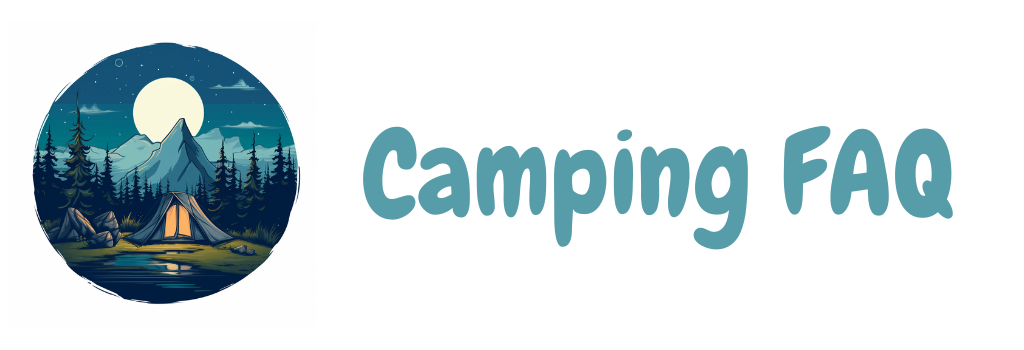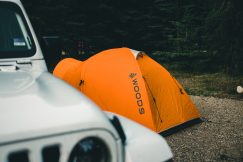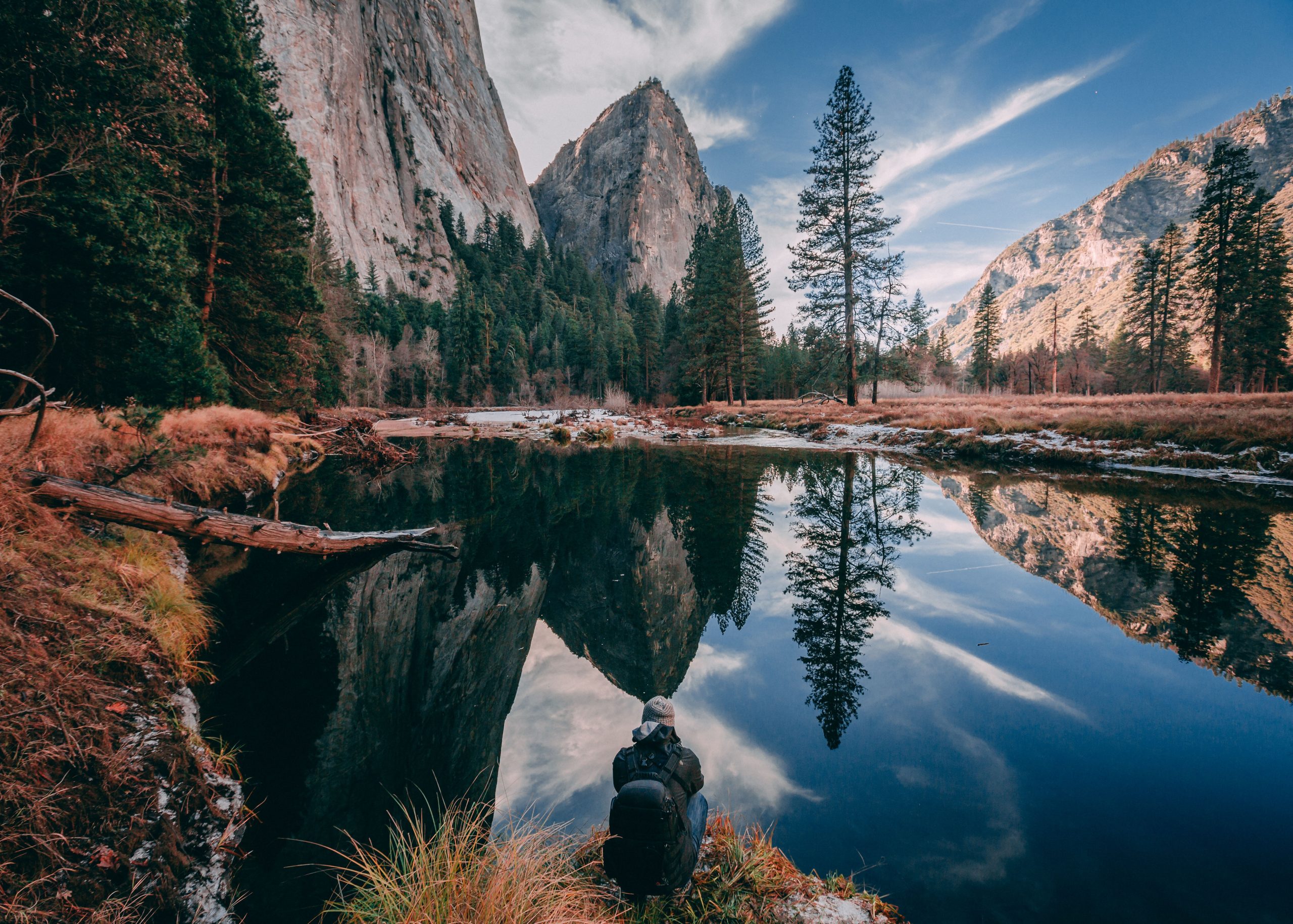planning a camping trip to a national park can be an exciting and fulfilling adventure. However, one crucial aspect that often leaves campers scratching their heads is figuring out when reservations open for camping. Timing is everything when it comes to securing a spot at your favorite national park, and in this article, you will discover the key dates and tips to ensure that you snag your desired camping reservation. So, grab your camping gear and get ready for an informative journey on when to book your next outdoor escapade.
Overview of Camping Reservations in National Parks
camping in national parks is an incredible way to connect with nature and experience the beauty of the great outdoors. However, with the growing popularity of camping, it has become increasingly important to make reservations in advance. In this comprehensive guide, we will explore the importance of camping reservations, popular national parks for camping, different types of camping reservations, factors to consider when booking, reservation periods, planning ahead, the reservation process, specific national park reservation timelines, exceptions and special permits, popular camping resources, the importance of flexibility, and cancellation and refund policies. By the end of this article, you will have a thorough understanding of how to navigate the camping reservation process and ensure a memorable camping experience in a national park.
Importance of Camping Reservations
Camping reservations in national parks are vital for several reasons. Firstly, they guarantee you a spot at a campground, eliminating the uncertainty of arriving at your desired destination only to find it fully occupied. With camping gaining popularity, campsites can quickly fill up, especially during peak seasons. By making a reservation, you secure your place and have peace of mind knowing that you will have access to essential amenities such as restrooms, picnic tables, and fire pits during your stay.
Additionally, camping reservations allow park administrators to manage visitor numbers effectively, ensuring a more enjoyable experience for all campers. By limiting the number of campsites available, national parks can protect the environment and maintain the natural beauty of the surroundings. So, by making a reservation, you are not only ensuring your own comfort but also contributing to the preservation of these stunning landscapes for future generations.

Popular National Parks for Camping
When it comes to camping in national parks, there are several iconic destinations that attract countless outdoor enthusiasts. Yosemite National Park, located in California, is a favorite among campers due to its breathtaking waterfalls, majestic granite cliffs, and abundant wildlife. Yellowstone National Park, primarily located in Wyoming, is another popular choice, renowned for its geothermal features, including the famous Old Faithful geyser. Glacier National Park in Montana offers awe-inspiring views of rugged mountains, pristine lakes, and massive glaciers, making it a must-visit for nature enthusiasts. The Grand Canyon National Park in Arizona needs no introduction, with its incredible vistas carved by the mighty Colorado River drawing visitors from around the world. Finally, Rocky Mountain National Park in Colorado offers a diverse range of camping opportunities, from high alpine meadows to dense forests and picturesque lakes. These are just a few examples, and each national park has its unique charm and natural wonders to explore.
Types of Camping Reservations
When it comes to camping reservations in national parks, there are typically three main types to consider: individual reservations, group camping reservations, and backcountry camping permits.
Individual reservations are the most common type and cater to small groups or families looking for a traditional camping experience within designated campgrounds. These reservations can be made for dates throughout the year and are typically available on a first-come, first-served basis.
Group camping reservations, as the name suggests, are ideal for larger groups of campers who wish to camp together in a designated group camping area. These reservations may have specific requirements and allow for a more communal camping experience.
Backcountry camping permits, on the other hand, are needed for those seeking a more remote and immersive camping experience away from designated campgrounds. These permits grant access to the backcountry, where campers can explore pristine wilderness areas and set up their tents in secluded spots. This type of camping often requires advanced planning, as permits are limited to protect the environment and ensure a sustainable camping experience.

Factors to Consider for Booking
When booking a camping reservation in a national park, there are several factors to consider to ensure a smooth and enjoyable experience. One important factor is the time of year. National parks often have peak and off-peak seasons, and camping during the peak season can be more crowded and competitive. If you prefer a quieter camping experience, it may be worth considering camping during the off-peak season when the weather is still favorable, and the number of visitors is lower.
Another factor to consider is the amenities and facilities available at the campground. Some campgrounds offer more basic amenities, such as pit toilets and no running water, while others provide more modern facilities, including showers and electric hook-ups. Depending on your camping preferences and needs, it’s essential to choose a campground that aligns with your expectations.
Accessibility is also an important factor to consider. If you have specific mobility requirements or are traveling with young children, you may want to choose a campground that offers easy access to facilities and attractions.
Lastly, research the rules and regulations specific to the national park you plan to visit. Some parks may have restrictions on pets, campfires, or other activities. Being aware of these regulations beforehand will help you plan accordingly and avoid any surprises during your camping trip.
Reservation Periods
Understanding the different reservation periods is crucial when planning your camping trip in a national park. Each park has its unique reservation system, and it’s essential to familiarize yourself with the specific reservation periods and booking windows to secure your desired dates.
Peak Season Reservations
During the peak season, national parks experience the highest visitor numbers, and popular campgrounds can fill up quickly. It’s important to be aware of when peak season reservations open to make sure you secure a spot. Generally, peak season reservations can open up to six months in advance, but it varies depending on the park. It’s advisable to check the official website of the park you intend to visit for specific dates and times.
Off-Peak Season Reservations
If you prefer a quieter camping experience, consider camping during the off-peak season. Off-peak seasons often have more availability, and you may have a better chance of securing a reservation closer to your desired camping dates. The booking windows and reservation periods during the off-peak season may differ from the peak season, so be sure to check the park’s website for specific details.

Planning Ahead
Planning ahead is key when it comes to camping reservations in national parks. By planning in advance, you increase your chances of securing your desired camping dates and locations. Here are some advantages of planning ahead and tips for making early reservations.
Advantages of Planning Ahead
One of the significant advantages of planning ahead is having a wider selection of campsites to choose from. By booking early, you increase your chances of getting the campground of your choice, particularly if you have specific preferences regarding location, amenities, or accessibility. Planning ahead also allows you to mentally prepare for your camping trip and make any necessary arrangements such as time off from work or arranging for transportation.
Understanding Booking Windows
Each national park has its specific booking window, which is the period of time during which you can make reservations. Understanding these booking windows is crucial to ensure you don’t miss out on your preferred dates. Some parks have booking windows that open six months in advance, while others may have different timeframes. Research the booking window for the specific park you plan to visit and mark the date on your calendar. Set a reminder to book your reservation as soon as the window opens to increase your chances of securing your desired camping dates.
Tips for Early Reservations
To maximize your chances of securing an early reservation, there are several tips you can follow. Firstly, be prepared. Have all the necessary information readily available, such as the park name, campground preferences, and desired dates. Research the campground options beforehand and have a few backup choices in case your first choice is not available.
Logging into the reservation system a few minutes before it opens can also give you a competitive advantage. Being one of the first to access the system increases your chances of securing a reservation before others snag the available spots.
Finally, be flexible with your dates if possible. By having a few alternative dates in mind, you can increase your chances of finding availability at your preferred campground. Flexibility is crucial, especially during peak season when campsites fill up quickly.
Reservation Process
When it comes to making camping reservations in national parks, there are typically three main methods: online reservation systems, phone reservations, and in-person reservations. Let’s explore each of these methods in more detail.
Online Reservation Systems
Online reservation systems have become the preferred method for making camping reservations in national parks. Most parks have their own official websites where you can easily search for availability, select your desired campground and dates, and make a reservation directly. These websites often provide detailed information about each campground, including amenities, photos, and maps. Online reservation systems offer the convenience of browsing and booking from the comfort of your own home, saving you time and effort.
Phone Reservations
If you prefer a more personal touch or encounter any issues with the online reservation system, phone reservations are also available. National parks typically provide a phone number where you can reach a reservation agent who can assist you with the booking process. Phone reservations allow you to ask questions, clarify any doubts, and receive personalized recommendations based on your preferences and needs. Keep in mind that phone lines can get busy during peak season, so it’s advisable to call early in the day or during off-peak hours for a smoother booking experience.
In-Person Reservations
For those who prefer a face-to-face interaction or have specific requests that require in-person assistance, some national parks offer the option of making reservations in person. Park visitor centers or campground offices usually provide this service, allowing you to speak directly with park staff and get personalized assistance. In-person reservations are particularly useful if you are already in the park and want to extend your stay or make last-minute changes to your camping plans.

Specific National Park Reservation Timelines
Different national parks have varying reservation timelines, making it essential to be familiar with the specific dates and windows for each park. Let’s take a look at the reservation timelines for some of the most popular national parks:
Yosemite National Park
Yosemite National Park allows reservations up to five months in advance for camping at most of its campgrounds. However, some campgrounds have different reservation windows, so it’s important to check the official Yosemite National Park website for the specific campground you plan to stay at.
Yellowstone National Park
Yellowstone National Park offers camping reservations up to six months in advance. However, it’s worth noting that certain campgrounds within the park are available on a first-come, first-served basis, particularly during the off-peak season.
Glacier National Park
Glacier National Park has a reservation window that opens on March 1st each year. Reservations can be made up to six months in advance and are highly recommended for securing a spot in this popular park.
Grand Canyon National Park
Grand Canyon National Park offers two options for camping reservations. The South Rim campgrounds accept reservations up to six months in advance, while the North Rim campgrounds have a longer reservation window, opening up to 13 months ahead. Given the popularity of the Grand Canyon, early reservations are advisable to secure a spot.
Rocky Mountain National Park
Rocky Mountain National Park allows camping reservations up to six months in advance. The park offers a range of campgrounds, from primitive to more developed options, catering to a variety of camping preferences.
Exceptions and Special Permits
While the majority of camping reservations in national parks follow a standard booking process, there are some exceptions and special permits to be aware of. Let’s explore a few of these exceptions:
Group Camping Reservations
For larger groups of campers, group camping reservations offer the opportunity to camp together in designated group camping areas. Group reservations often have unique requirements, such as a minimum number of participants or a specific reservation process. It’s important to check with the specific park for details on group camping reservations and how to proceed.
Backcountry Camping Permits
If you are interested in exploring the more remote areas of a national park and camping in the backcountry, you will typically need a backcountry camping permit. Backcountry permits allow campers to travel and camp in wilderness areas outside of designated campgrounds. These permits help manage visitor numbers, protect fragile ecosystems, and ensure a safe and sustainable camping experience. Backcountry camping permits often require advanced planning and can have different reservation processes depending on the specific park. It’s crucial to research and understand the requirements and reservation timelines for backcountry camping permits before embarking on your adventure.
First-Come, First-Served Campgrounds
While many campgrounds in national parks operate on a reservation basis, some campgrounds offer first-come, first-served availability. These campgrounds do not require advanced reservations, making them a suitable option for spontaneous campers or those who prefer more flexibility. Keep in mind that during peak season, first-come, first-served campgrounds can fill up quickly, so arriving early in the day is advisable to secure a spot.

Popular Camping Resources
When planning a camping trip in a national park, it’s helpful to utilize various camping resources to streamline the reservation process and gather information. Here are a few popular camping resources to consider:
Official National Park Websites
Official national park websites are an excellent place to start your camping reservation journey. These websites provide accurate and up-to-date information on campgrounds, reservation timelines, availability, and rules and regulations specific to each park. Official websites also often feature maps, photos, and descriptions of campgrounds, allowing you to choose the perfect spot for your camping adventure.
Third-Party Booking Websites
In addition to official park websites, there are several third-party booking websites that can assist in finding and securing camping reservations. These websites often aggregate information from multiple national parks, making it easier to compare and book campsites across different locations. However, it’s important to verify the legitimacy of these websites and cross-reference the information provided with the official park websites to ensure accuracy.
Camping Reservation Apps
If you prefer the convenience of accessing information and making reservations on your mobile device, camping reservation apps are an excellent resource. Many national parks have their own apps, allowing you to browse campgrounds, check availability, and make reservations directly from your smartphone. These apps often provide real-time updates on campground availability, ensuring you can secure a spot even while on the go.
Importance of Flexibility
Flexibility is a valuable asset when it comes to camping reservations in national parks. While it’s ideal to secure your desired camping dates and locations, being open to alternative options can significantly increase your chances of finding availability. Here are a few reasons why flexibility is crucial:
Being Flexible with Dates
If your schedule allows, being flexible with your camping dates can open up more availability. Consider camping during the weekdays or during the off-peak season when competition for campsites is lower. By avoiding weekends and peak times, you not only increase your chances of securing a reservation but also enjoy a quieter and less crowded camping experience.
Alternative Camping Options
If your preferred campground is fully booked, don’t despair! Many national parks have multiple campgrounds, each with its unique features and ambiance. Research alternative campgrounds within the park or explore nearby parks that offer similar natural beauty. By being open to exploring different options, you might discover hidden gems and create unforgettable camping memories.
Last-Minute Availability
In some cases, last-minute availability can arise due to cancellations or changes in plans. Keeping an eye on campground reservation systems even after they appear to be fully booked can sometimes yield unexpected openings. If you can be spontaneous and flexible with your camping plans, you may be able to snag a last-minute reservation that others miss out on.
Cancellation and Refund Policies
Understanding cancellation and refund policies is essential to ensure you have flexibility and options in case your plans change. While policies may vary between national parks, here are some general points to consider:
Understanding Cancellation Policies
Camping reservations often come with specific cancellation policies that dictate how much of a refund, if any, you are eligible for if you decide to cancel. It’s crucial to read and understand these policies before making a reservation to avoid any potential loss of funds. Some campsites may have stricter cancellation policies during peak seasons or unique circumstances, so be sure to familiarize yourself with the specific park’s policies.
Refund Options
Depending on the park’s policies, refunds for camping reservations can vary. Some parks may offer full refunds if you cancel within a certain timeframe, while others may have cancellation fees or non-refundable deposits. Additionally, some parks may provide the option to receive a voucher or credit for a future stay instead of a refund. Understanding the available refund options can help you make an informed decision when canceling or modifying a reservation.
Modifying Existing Reservations
If you need to make changes to an existing camping reservation, such as adjusting dates or campground locations, it’s advisable to contact the park directly. Park staff can provide guidance on the modification process, any associated fees, and the availability of alternative options. Modifying an existing reservation, when possible, is often preferable to canceling and rebooking, as it helps preserve your original reservation date and guarantees you a spot within the park.
Conclusion
Camping reservations in national parks are essential to ensure a seamless and enjoyable outdoor experience. By understanding the importance of camping reservations, familiarizing yourself with the popular national parks for camping, exploring the types of reservations available, considering various factors during the booking process, and planning ahead, you can secure your desired camping dates and locations. Remember to be flexible, utilize reputable camping resources, and understand the cancellation and refund policies specific to each national park you plan to visit. With proper preparation and a little flexibility, you’ll be well on your way to embarking on a memorable camping adventure in one of the nation’s stunning national parks. Happy camping!




